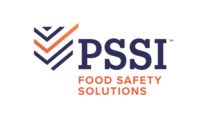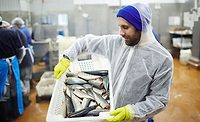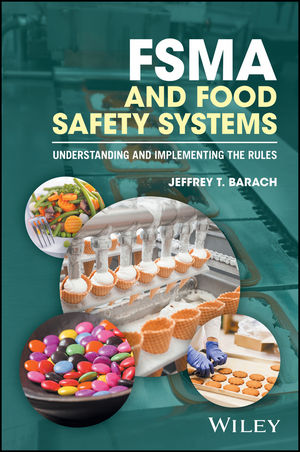How to protect against COVID-19 in the food processing environment




The impact of the COVID-19 pandemic caused by the novel SARS-COV-2 virus is unprecedented. Individuals around the world are taking precautions to keep others and themselves safe. How can food processing facilities take the proper steps to ensure safety for their employees?
Protecting the food industry
A robust food safety plan includes an effective handwashing program, and proper handwashing is proven to be an effective way for people to protect against transmission of the Coronavirus.
Proper hand soap is essential. Food processors should make sure that all hand soap within their facility is fragrance free and meets the needs of their food safety plan. Where appropriate, soap containing an antimicrobial ingredient like Chlorhexidine Gluconate (CHG) and quaternary ammonium compounds, which can kill bacteria, can be used.
Now is an excellent opportunity to retrain employees, review their handwashing procedures, encourage them to wash their hands more frequently and make sure the appropriate supplies, like proper hand soap and paper towels, are readily available.
With increased handwashing, companies will need to stock handwashing locations throughout the plant with supplies and monitor them for supply quantities on a more frequent basis. They’ll also need to be sure they have adequate stock to replenish these stations on an increased basis.
Protecting everyone throughout the facility
While production employees should clearly understand and follow food safety guidelines, those in administrative roles might not be as aware of the steps to help protect them and minimize the spread of viruses. Management should communicate best practices with office staff per the Center for Disease Control (CDC) or the U.S. Department of Health and Human Services (HHS) guidelines.
Management should also provide ample hand sanitizer for employees throughout the office. Hand sanitizer should contain at least 60 percent alcohol. Hand sanitizers are convenient and helpful when proper hand washing facilities are not available, but are not a fully effective substitute for proper hand washing. Frequent cleaning of workspaces and other areas within the office environment should also be encouraged, and companies should provide employees adequate supplies to clean these areas thoroughly.
Companies should also follow CDC, state and Health Department guidelines to develop restrictions for visitors and set other policies that can help protect safety and restrict transmission of the virus. Refer to those sites for directions on what symptoms employees should look for, what they should do if they think they’ve been exposed and what they can do to protect their families. Managers should instruct all employees on this information, not just production staff.
What to do if the virus is confirmed in your facility
If the virus is confirmed present at your facility, the Department of Health suggests shutting down for 72 hours for a deep cleaning, using products known to be effective against the virus. The Environmental Protection Agency (EPA), which regulates sanitizers and disinfectants, has issued a list of antimicrobial products that it expects to be effective against the virus under the Emerging Pathogen Guidance for Antimicrobial Pesticides Program. If you have an employee who has tested positive, consider who that person might have been in close contact with, ask those people to stay home and call, don’t visit, their health care provider.
Follow guidelines and reduce the risk
Flattening the curve is the goal. Taking substantial preventative measures is essential. The short term disruption that comes with these measures is a small price to pay for dealing with the spread of COVID-19. Doing our part means we’re helping our businesses and those we work with stay safe
Looking for a reprint of this article?
From high-res PDFs to custom plaques, order your copy today!












